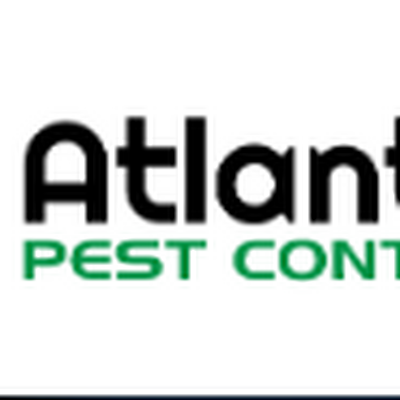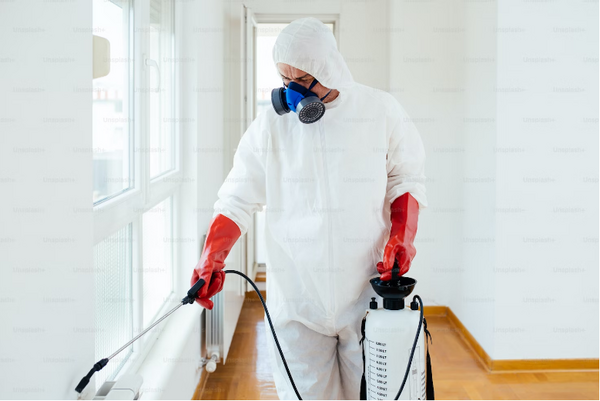Notifications
ALL BUSINESS
COMIDA
DIRECTORIES
ENTERTAINMENT
FINER THINGS
HEALTH
MARKETPLACE
MEMBER's ONLY
MONEY MATTER$
MOTIVATIONAL
NEWS & WEATHER
TECHNOLOGIA
TV NETWORKS
VIDEOS
VOTE USA 2026/2028
INVESTOR RELATIONS
COMING 2026 / 2027
ALL BUSINESS
COMIDA
DIRECTORIES
ENTERTAINMENT
FINER THINGS
HEALTH
MARKETPLACE
MEMBER's ONLY
MONEY MATTER$
MOTIVATIONAL
NEWS & WEATHER
TECHNOLOGIA
TV NETWORKS
VIDEOS
VOTE USA 2026/2028
INVESTOR RELATIONS
COMING 2026 / 2027
 Atlantic Pest Control -
October 30, 2023 -
Business -
pesticide control
-
417 views -
0 Comments -
0 Likes -
0 Reviews
Atlantic Pest Control -
October 30, 2023 -
Business -
pesticide control
-
417 views -
0 Comments -
0 Likes -
0 Reviews

Introduction:
Pesticides play a crucial role in managing pests and protecting our homes and environments. However, it is essential to use them responsibly and effectively to minimize potential risks to human health and the environment. In this guide, we will explore the key principles and practices of effective Pesticide Control to help you safeguard your home and create a healthier, pest-free environment.
Identify the pest:
Before selecting a Pesticide Control, it is crucial to properly identify the pest you are dealing with. Different pests require specific treatments, and misidentification can lead to ineffective or unnecessary Pesticide Control use. Take the time to research the pest or consult with a reputable pest control professional to ensure targeted and efficient control measures.
Integrated Pest Management (IPM):
Integrated pest management is a holistic approach to pest control that aims to minimize Pesticide Control use while effectively managing pests. IPM incorporates various strategies such as preventive measures, monitoring, physical barriers, cultural practices, and judicious Pesticide Control application. By implementing IPM, you can reduce reliance on pesticides and maintain a sustainable balance in your home and environment.
Read and follow pesticide labels:
Every pesticide comes with a label that provides crucial information on its proper use, application rates, safety precautions, and storage requirements. It is essential to thoroughly read and understand the label before using any Pesticide Control. Following the instructions will ensure effective control while minimizing potential hazards to human health and the environment.
Targeted Application:
When using pesticides, it is important to apply them only in areas where the pest is present and avoid treating non-infested or unnecessary areas. By targeting the application, you can maximize the efficacy of the pesticide and limit its impact on non-target organisms. Use spot treatments or localized application methods whenever possible instead of broad-spectrum spraying.
Protective Measures:
To safeguard yourself, your family, and the environment, always take appropriate protective measures when handling pesticides. Wear protective clothing, gloves, goggles, and a mask to prevent direct contact and inhalation of the pesticide. Additionally, ensure proper ventilation when applying pesticides indoors and avoid using them in areas accessible to children and pets.
Store and dispose of properly:
Proper storage and disposal of pesticides are crucial to preventing accidental poisoning and environmental contamination. Keep pesticides in their original containers with the label intact, stored in a secure, locked cabinet away from food, water sources, and children's reach. When disposing of pesticides, follow local regulations and guidelines to prevent pollution and harm to wildlife.
Consider non-chemical alternatives:
Effective pesticide control doesn't always require the use of chemicals. Explore non-chemical alternatives such as biological controls, physical barriers, trapping, or natural remedies. These methods can be safe, environmentally friendly, and effective in managing pests, especially in small-scale or low-risk situations.
Regular monitoring and maintenance:
Pests can be persistent, so it is crucial to monitor your surroundings regularly and address any signs of infestation promptly. Implement preventive measures and conduct routine inspections to catch pest problems early. Proper maintenance of your home and landscape, such as sealing cracks, keeping a clean environment, and managing moisture, can reduce the attractiveness of pests and their ability to thrive.
Conclusion:
Effective pesticide control is not just about eliminating pests; it is about safeguarding our homes and environments in a responsible and sustainable way. By following the principles of integrated pest management, reading and following pesticide labels, targeting applications, taking protective measures, and considering non-chemical alternatives, we can achieve effective pest control while minimizing potential risks. Let's be conscious stewards of our environment, striving for pest-free spaces while preserving the health and well-being of our families and ecosystem.
